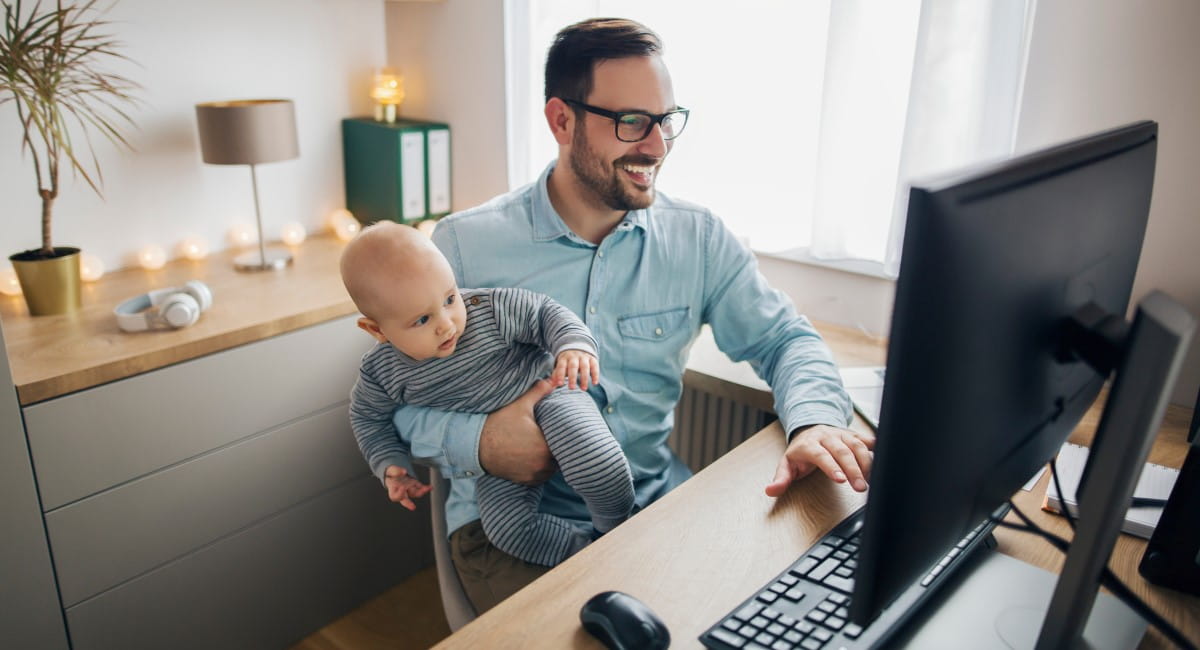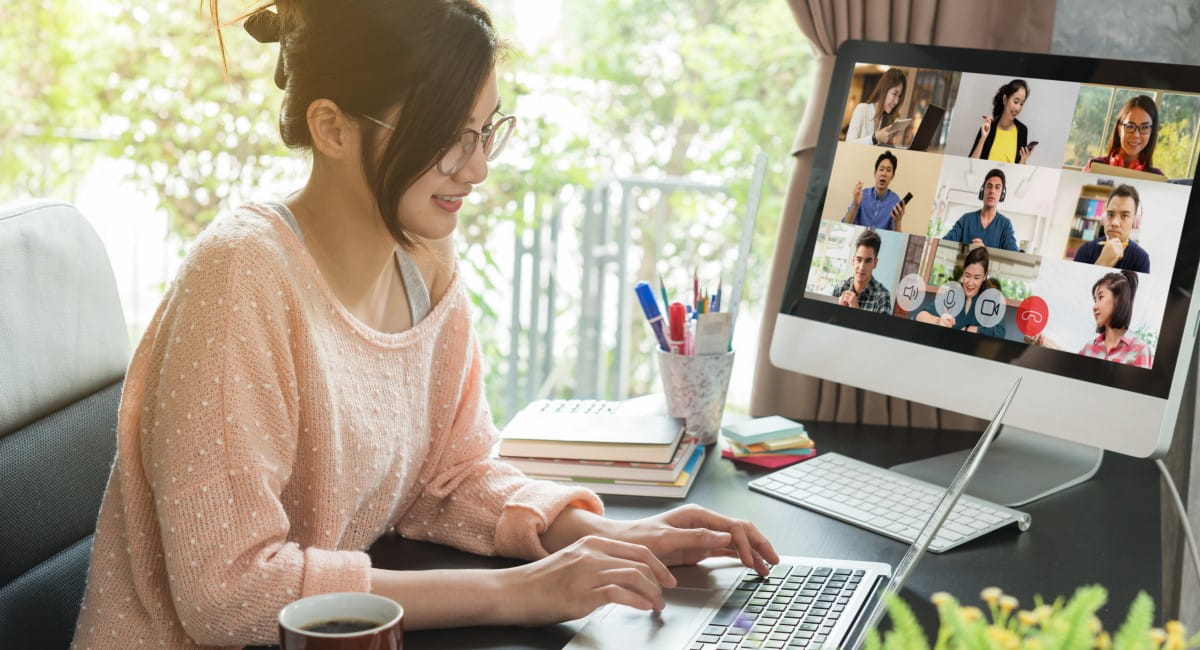“A strong sense of purpose is one of the three keys to happiness that we talk about. It’s that reason why people get out of bed in the morning. And you can derive that sense of purpose from all those little things on a day-to-day basis when you go to work.”—Dr Kate Lycett, School of Psychology, Deakin University.
Key points
- The COVID pandemic shifted the way we think about work, believes Australian Unity’s Group Executive People and Culture, Prue Bowden, to focus on life before work—and not the other way round.
- One of the pandemic’s biggest impacts of workplace culture has been the loss of human connectivity, due to the move to remote working.
- Australian Unity Wellbeing Index research conducted in 2021 found that our satisfaction with “achieving in life” (sense of purpose) fell to the lower end of the average range during the pandemic, while our satisfaction with “standard of living” (finances) remained relatively high.
Do you remember your work life before the arrival of the pandemic? You used to curse your way through traffic or sit on packed trains on an hour-long commute (each way) to spend time in the office, write emails and talk on the phone. Back then, “zoom” meant moving quickly, while a request “to work from home” would be met with open suspicion from your boss.
Then along came COVID-19, an infectious disease that brought with it an unexpected side effect: it would change the very nature of the way we work.
“The pandemic shifted everyone to think about life before work rather than work before life,” says Prue Bowden, Australian Unity’s Group Executive People & Culture*. “It just totally reframed what matters to individuals, what matters to families and what our life priorities are.”

The COVID alternative
Prior to COVID, many of us were caught in the relentless treadmill of the daily grind. The juggling act of trying to balance the responsibilities of home and office life was often stressful and intense, but we endured it because it always seemed like there was no other choice.
“But COVID’s given everyone a very real sense of what an alternative looks and feels like,” says Prue. “And people are not wanting to give up those small moments that make their life better for their family and for them as individuals.”
“Because those small moments matter to people. Things like being there to take the kids to school, being there to put a few loads of washing on and make dinner while managing your work around it. Versus having to leave the house at 7:30am, catch the train, be in the city, get home at 6:00pm and then dinner is still not prepared…”
Yet what does this collective light-bulb moment really mean for the future of work? Given that the past couple of years have demonstrated that people can, in fact, work well from pretty much anywhere, the answer would seem to be some form of hybrid work that combines some days in the workplace and some days at home.
“People are very resistant to coming back to spend large amounts of time in physical workplace settings,” admits Prue.
The hybrid conundrum
On paper, hybrid work seems like the best of both worlds—a magical combo of professional efficiency and domestic harmony where you can smash your deadlines while baking a chocolate cake. Yet in practice it can also have its downsides.
If you were lucky, the pre-pandemic office was a place of chatter, gossip and shared experiences with the odd after-work drink thrown in. “Water-cooler chat”, where colleagues socialised incidentally during a quick break from work, was an actual thing. It’s impossible to replicate that interpersonal dimension when you’re working from home, no matter many quirky Zoom filters you muster.

“The biggest impact on workplace culture is that loss of human connectivity,” agrees Prue. “I’m a huge fan of flexibility and embracing the concept of hybrid. But the thing about remote working is that it’s transactional. Every time you engage with someone, you have to purposefully organise a meeting and it requires a lot of structure to it. And I think it misses a lot of the richness that is working with others in a workplace to achieve a team outcome.
“But life is about trade-offs, isn’t it? And I think people are making those trade-off decisions to say, ‘Actually, my family moments matter more to me than those incidental colleague interactions’."
A hidden side effect
The prevailing mood would indeed suggest there’s little appetite for a full-on return to office life. But Australian Unity Wellbeing Index findings also detect a certain ambivalence. Notably in 2021, the Wellbeing Index, which has studied the wellbeing of Australians in partnership with Deakin University for more than 20 years, found that our collective satisfaction with “achieving in life” fell to the lower end of the normal range during the pandemic.
The Wellbeing Index has consistently demonstrated that having a sense of purpose is crucial to our wellbeing, with the “achieving in life” domain forming part of the golden triangle of happiness. Lead researcher Dr Kate Lycett from Deakin University’s School of Psychology is keen to see what happens to this domain in 2022 as we all adjust to the new normal with hybrid working models now common place and expected by employees.
“A strong sense of purpose is one of the three keys to happiness that we talk about,” says Kate. “It’s that reason why people get out of bed in the morning. And you can derive that sense of purpose from all those little things on a day-to-day basis when you go to work, like going to see your barista to get your coffee or going to meetings. Much of that completely changed during the pandemic when we started working from home.”

Intriguingly, while our achieving in life scores may have dipped, the research also shows that our satisfaction with our “standard of living”, or finances, remained relatively high in 2021, hovering at the upper end of the average range and close to the highest score recorded in 2020.
At first glance, it’s hard to reconcile this standard of living score with the achieving in life one. After all, you might assume the primary reason that we work is for reimbursement—and the Australian Unity Wellbeing Index results show that we’re still fairly comfortable in that regard. Government subsidies like JobKeeper may have ensured many people didn’t have to endure huge drops in their living conditions. But consciously or not, we don’t just work for the pay cheque, says Kate. Our work can also give our lives structure, identity and meaning.
“We know that many people derive a very strong sense of purpose from their jobs,” says Kate. “If people are lacking a sense of purpose, they’re likely to have low level levels of wellbeing.”
As we move towards the “new normal” and new ways of working, it’s something to ponder.
*Title correct at the time of interview. Prue has since been appointed to the role of Group Executive, Home Health.
Disclaimer: Information provided in this article is of a general nature. Australian Unity accepts no responsibility for the accuracy of any of the opinions, advice, representations or information contained in this publication. Readers should rely on their own advice and enquiries in making decisions affecting their own health, wellbeing or interest. Interviewee titles and employer are cited as at the time of interview and may have changed since publication.


